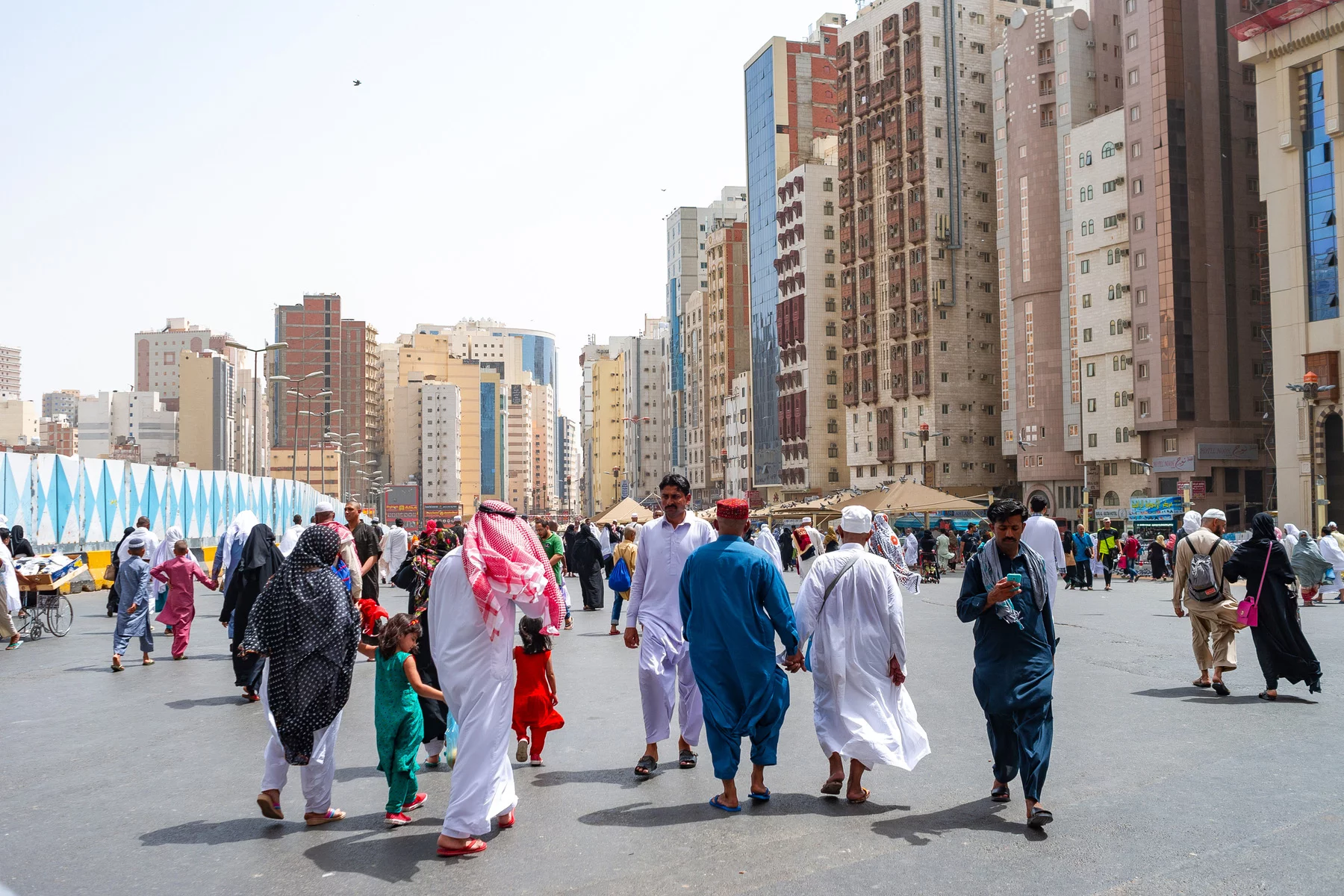Business culture in Saudi Arabia is unique, and understanding how things are done in the Kingdom’s boardrooms, offices, and meeting venues is central to successfully doing business in the Arab world’s largest economy.
This detailed guide explains all, including the do’s and don’ts when doing deals and working in the country. It includes the following information:
- Business in Saudi Arabia
- Business culture in Saudi Arabia
- Working hours and conditions in Saudi Arabia
- Business etiquette in Saudi Arabia
- Organizational structure and hierarchy in Saudi Arabia
- Business strategy, planning, and decision-making in Saudi Arabia
- Meetings and negotiations
- Business networking in Saudi Arabia
- Business socializing in Saudi Arabia
- Women in business in Saudi Arabia
- Businesses in the community in Saudi Arabia
- Business corruption and fraud in Saudi Arabia
Coursera
Boost your career with Coursera. This online learning platform lets individuals and organizations learn new job-relevant skills. They partner with over 275 leading universities and companies to offer flexible, affordable courses. From hands-on projects to certificates and degree programs, start your learning journey today with Coursera.
Business in Saudi Arabia
Saudi Arabia has been doing business with the outside world for decades. This has traditionally been through oil exports; which even now account for 90% of state income. But petrochemicals, power, telecoms, healthcare, and even tourism are big business now, attracting foreign investment and injecting new life, and business opportunities, across this vast land.

The Kingdom continues to open its doors to the global business world far beyond oil. Every year CEOs of the biggest companies converge at the Future Investment Initiative (dubbed Davos in the Desert) in Riyadh.
Entrepreneurship is flourishing in the country, too, as the government prioritizes the creation of small and medium-sized enterprises (SMEs). The highly ambitious Saudi Vision 2030 development plan is accelerating the economy’s integration into the global system. Meanwhile, foreign investment in non-traditional economic sectors is rising. Government initiatives have helped to root out corruption. In late 2017, for instance, it launched a high profile campaign targeting members of the royal family, ministers, and top businessmen; recovering $106 billion worth of assets.
Business culture in Saudi Arabia is adapting to this spirit of openness. Yet it remains a conservative country with conservative values, and business etiquette in the Kingdom reflects that. Therefore, developing a sixth sense about the rules of engagement in business is a vital ingredient to success.
Business culture in Saudi Arabia
Even though about half of the Kingdom’s workforce of 13 million is expat, business culture in Saudi Arabia dances to a decidedly local tune. Most decision-makers are Saudi and people doing business can expect unrivaled Arabian hospitality, canceled appointments, cordial chat, and hard bargaining in equal measure; all washed down with copious amounts of qahwa (a traditional Arabic coffee recipe). Flexibility, open-mindedness, and a calm demeanor are essential when going into battle for business in Saudi Arabia.

Local business culture revolves around personal relationships, consensus, and cohesion of the unit; whether that’s family, extended family, or business. Who you are, and who you know (which is known as wasta in Arabic), are important in business circles here. Time spent getting to know, and gaining the trust of, business associates is time well spent. Understanding the unique interplays, and influences, between the families (tribes) in Saudi society is also useful. It might take many meetings, both formal and informal, to make any tangible business headway.
A changing landscape
Business culture in Saudi Arabia is adapting to the changes and new realities relating to Saudi Vision 2030; of which one aim is to establish a vibrant society. This is noticeable in the expanded role of women in business and the workforce. There is already a thriving community of female entrepreneurs running start-ups in the country, for example.
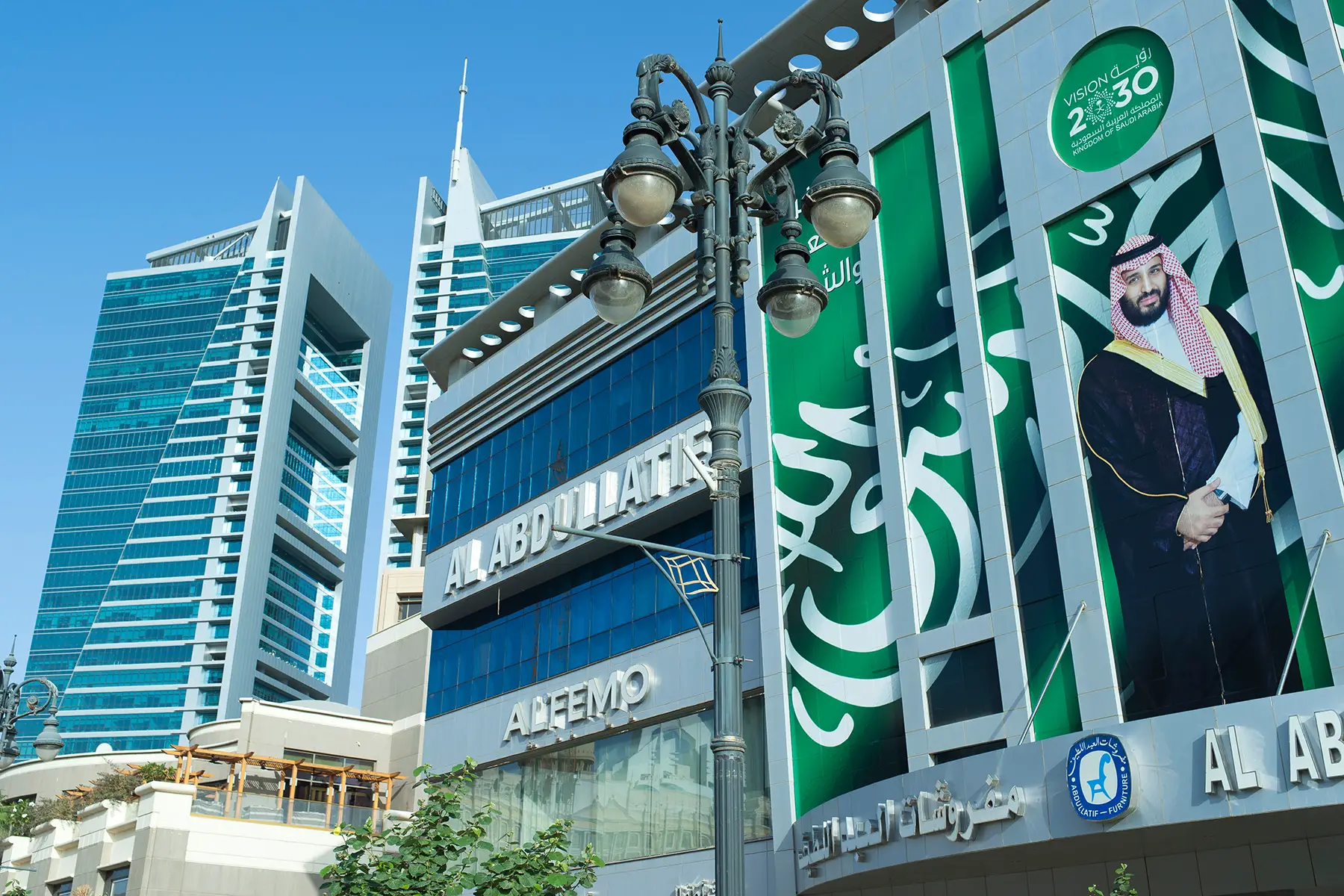
Vision 2030 is also helping improve business operations in the Kingdom. Accountability, transparency, ethics, and governance are all now under greater scrutiny. The government’s National Anti-Corruption Commission started in 2011 to tackle corruption in public organizations. As a result, Saudi’s rank on the Corruption Perceptions Index by Transparency International, an international think-tank, continues to improve steadily.
Saudi Arabia may lack the business-friendly tag of nearby Dubai. However, the Kingdom offers unique opportunities for those prepared to decipher the local business etiquette.
Working hours and conditions in Saudi Arabia
Most offices work from Sunday to Thursday, perhaps 8:00 to 18:00, or (less commonly) 7:00 to 19:00 (with a long lunch break). By law, the workweek is 48 hours maximum, and during the holy month of Ramadan, Muslim employees only work 30 hours per week.
Work-life balance is not a familiar concept in Saudi Arabia – for expats at least. For most of them, life in the Kingdom is about working hard and saving money. Because Saudi Arabia has long depended on foreign expertise (but where employers effectively own the employee while they are in the country), business culture often sees expats on call at all hours for their companies. This is particularly the case if it is a Saudi company. The idea of flexible/remote working is, for most sectors, unheard of.
Workers’ rights in Saudi Arabia
Violations of foreign workers’ rights (particularly in relation to manual labor) remains a problem in Saudi Arabia, and local newspapers regularly cover protests. In late 2018, seven new courts were set up across the country to hear cases related to labor law. These usually deal with disputes over labor contracts, wages, rights, and work injuries, and compensations.
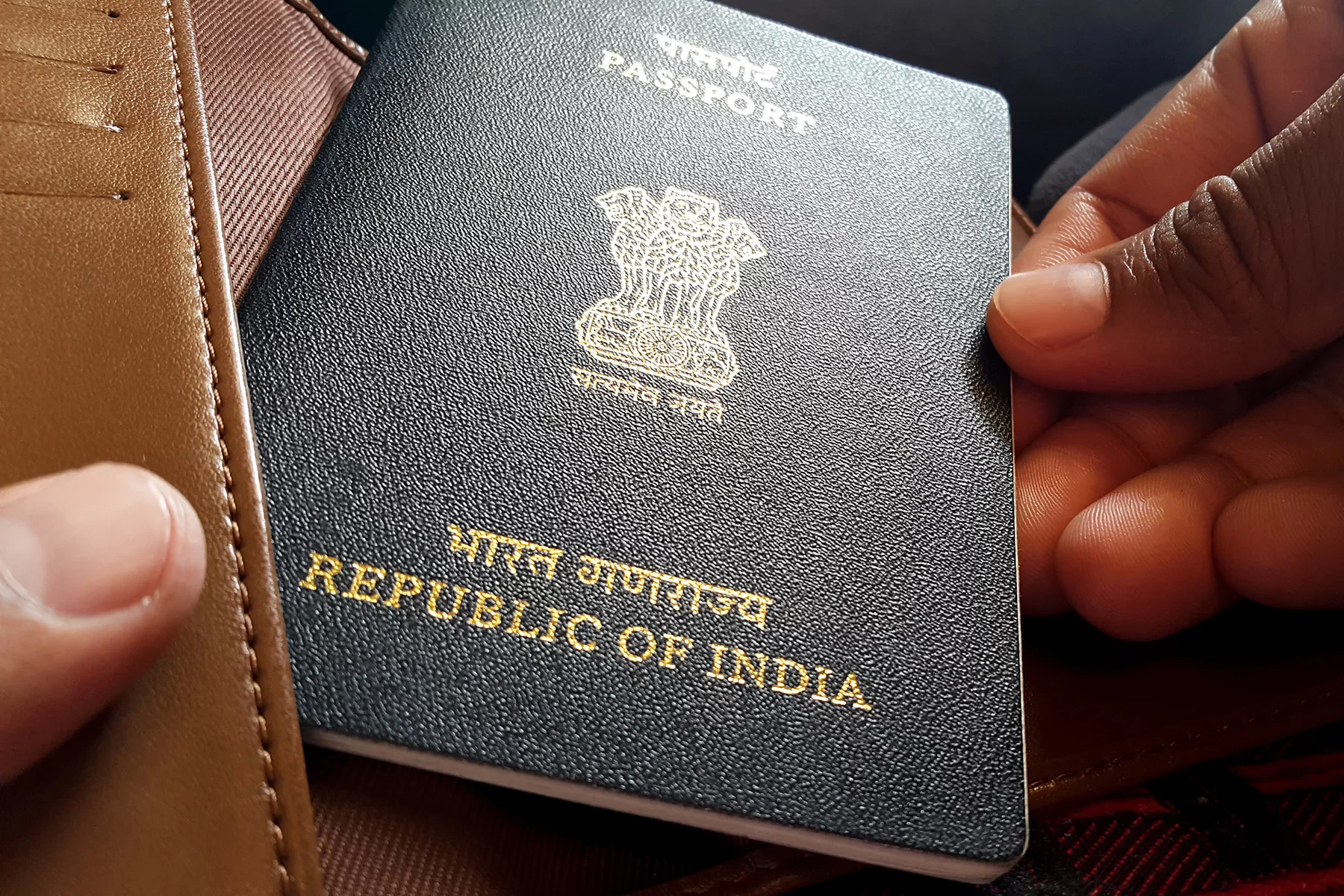
That said, employers routinely still confiscate workers’ passports on arrival in the country. In addition, employees still need permission from their employer, should they wish to leave the country at any time. Incidentally, there are no trade or labor unions in Saudi Arabia.
Islam is a cornerstone of life in Saudi Arabia, including the corporate world. Meetings and events are usually scheduled around prayer times. Furthermore, during Ramadan, it is forbidden to eat or drink in public (including offices) during daylight hours.
Expat tensions
Because Saudi society is close-knit, an ‘us’ and ‘them’ culture between locals and expats may prevail in some companies, and discrimination exists. The government’s Saudization policy, where citizens are fast-tracked into jobs, training, and promotion at the expense of expats, can stoke tensions. Also, compensation packages and salaries in Saudi Arabia in some companies may be based more on ethnicity rather than skills or experience.
Annual paid leave is 21 days by law. This rises to 30 days after five years’ service. There are three public holidays in Saudi Arabia for employees of private companies: Eid Al Fitr (three to seven days, depending on the public or private sector), Eid Al Adha (three to seven days, depending on the public or private sector), and Saudi National Day (23 September).
Business etiquette in Saudi Arabia
Business etiquette in Saudi Arabia reflects wider society. That is, conservative but unmistakably hospitable. For expats who have done business elsewhere in the Arab world, there are familiar themes.
Greetings
A handshake is the standard first-contact greeting in Saudi Arabia for men. If you are greeting a woman, wait for her to extend her hand first before offering yours. If she doesn’t, keep your hand by your side. Greet everyone in the room with a handshake, starting with the most senior person in the room and then by seniority; if you know the hierarchy in advance.

Saudis and other Arab men may embrace, and/or kiss on the cheek, nose, or forehead as a sign of deference and respect. However, expat men are not expected to do the same.
Timekeeping
Meetings and office environments in Saudi Arabia, while business-like, tend to be flexible and cordial affairs. Meetings likely have no agenda (or anyone to take minutes) and don’t take it personally if the appointment starts late, or they cancel it at the last minute. In fact, Saudis place little value on punctuality as a whole. Appointments often start late, and prayer times dictate schedules. Some firms (especially multinationals or large international-facing Saudi organizations) now have staff clock-in devices.
Prepare yourself for interruptions, too. The more senior your contact, the steadier the flow of well-wishers, phone calls, and other disruptions! No matter how frustrating it is for your pitch to be interrupted, breathe deeply and smile politely!
Small talk and taboos
Much is made of small talk, especially in the initial ‘get to know you’ stages. Acceptable topics for discussion are families, business, art, culture, and sport. Being generous with your opinions on Saudi culture, history, and achievements will be very well received. However, steer well clear of local politics, religion, or the royal family, unless (in the unlikely event) they seek your opinion on the matter. Knowing a few Arabic greetings will also go down really well, although most Saudi businesspeople speak good English.
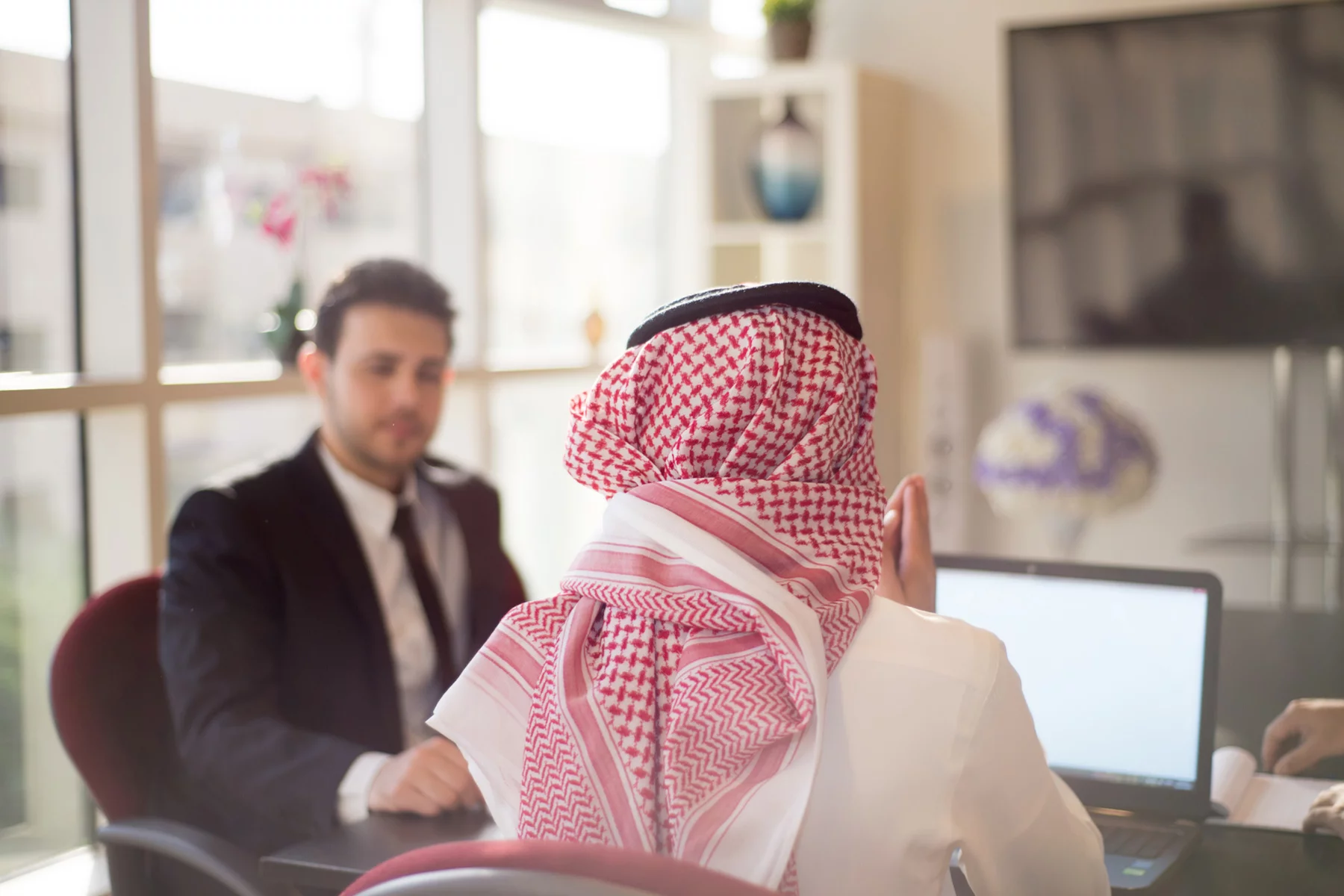
During a meeting or in negotiations, Saudis will sometimes start talking loudly and passionately. To western ears, this might sound aggressive, but while it could indicate displeasure, it could equally indicate enthusiasm for the subject in hand. There will also be a period of calm; therefore, don’t interpret silence during a meeting as anything other than time for reflection and contemplation. Meetings are normally conducted in English if different nationalities are attending, but attendees may discuss delicate or technical points in Arabic.
Body language
When it comes to the business end of negotiations, Saudi thinking becomes hard to read. Communication becomes more about body language and other non-verbal cues. Rarely will a business deal or proposal be flatly rejected by mouth.
Cultural faux pas
Many Saudi businesspeople are used to dealing with foreigners and will forgive small cultural faux pas. Some red lines do exist which could cause offense and which should be avoided. For instance, never show the soles of your feet, and don’t openly argue with your host; especially in the presence of others. Furthermore, don’t raise your voice, and use only your right hand when eating.
Dress code
It’s always best to dress to impress in the Kingdom. Offices and meetings demand formal attire. This means a suit and tie for expats, and national dress (white thobe, red/white checked ghutra) for locals. All women must wear an abaya (black cloak), although foreign women need not cover their head.
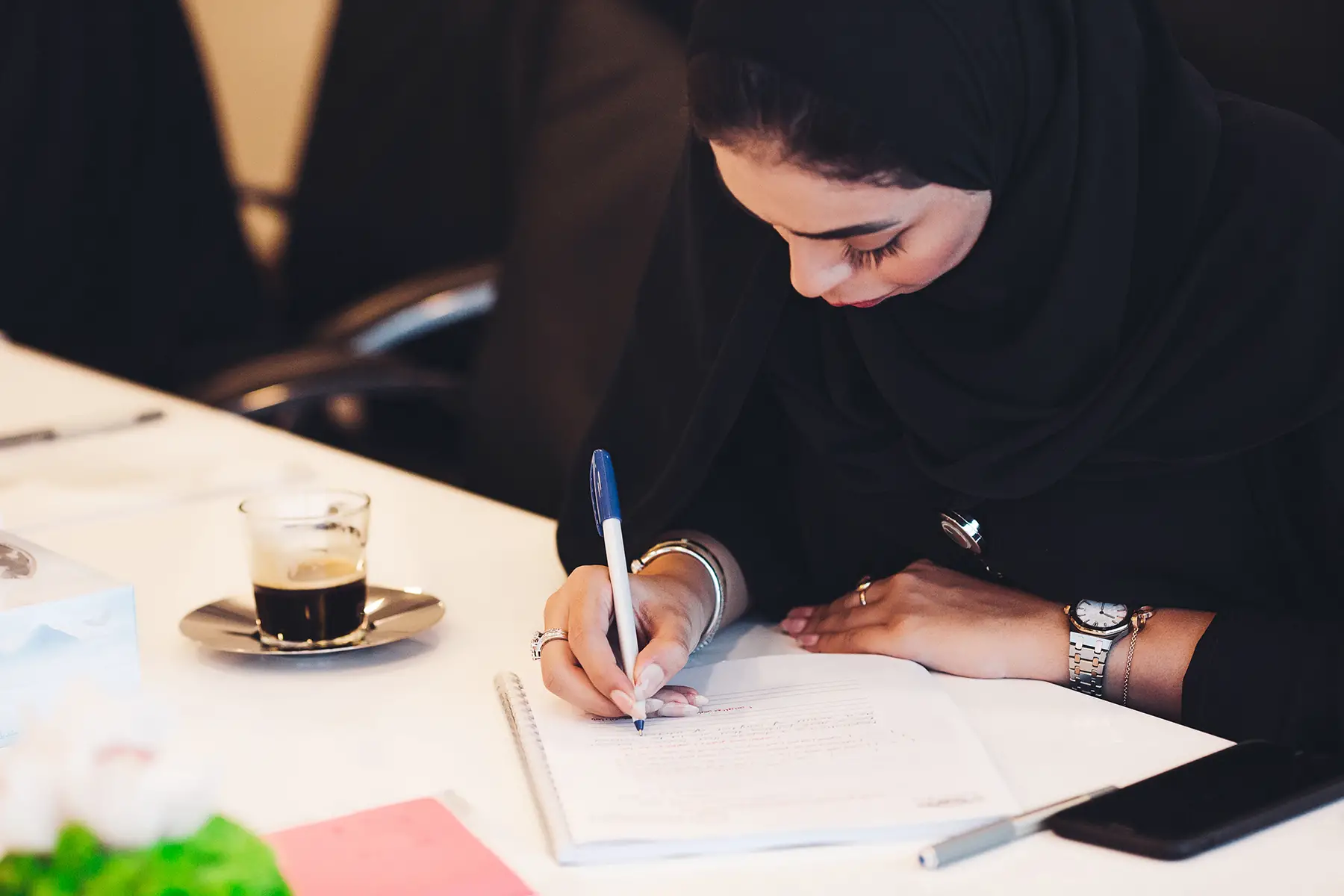
Gifts
Gift-giving is not part of business etiquette in Saudi Arabia. However, if you do decide to give a gift (perhaps to a well-known contact), present it with your right hand.
Business cards
Exchange business cards (with the right hand) at the start of the meeting. Also, try to take note of any particular designations on your contact’s card – for example Shaikh, Doctor, or Engineer – and refer to the person like that from time to time during the conversation.
Organizational structure and hierarchy in Saudi Arabia
Saudi society is hierarchical, and companies are, too. There are rigid top-down structures in most organizations, with decision-making powers usually resting with just a few senior managers. This might just be the head of the family if it is a family business.
Junior staff are expected to show loyalty to management and are not expected (or empowered) to openly question decisions or strategy. Some choose (by default or design) subordination over proactivity, although as in Saudi society, your name and your contacts will dictate how far up the food chain you can go.
Business strategy, planning, and decision-making in Saudi Arabia
The Arab world’s largest economy boasts many successful conglomerates, companies, family businesses, and entrepreneurs. As the Kingdom enters a new socio-economic era, many organizations now take their strategic cues from Saudi Vision 2030.

This influences their approach to societal, community, environmental, and economic issues. Multinationals and foreign joint ventures operating in the Kingdom are expected to buy into the principles of the Vision, even if decisions are taken at home.
The decision-making process
Although the pace of change in Saudi Arabia is rapid, family businesses are renowned for being slow innovators, and corporate governance and succession planning are seen as key challenges in this sector.
Decision-making powers in Saudi Arabia lie with just a few senior executives at the top of the food chain. While line managers may have an input on planning, execution, and setting budgets, strategic decisions are typically made by a select few. Annual business reviews are also becoming more common in the Kingdom.
Meetings and negotiations
One of the biggest challenges facing anyone doing business in Saudi Arabia is getting a foot in the door and meeting the right people. There are two ways to approach this: turn up at an office on-spec and hope that Arab hospitality towards visitors lands you an off-chance meeting with a decision-maker. Alternatively, get a personal introduction through a contact; sponsors in Saudi Arabia can be really useful in this respect.

Other than offices, business meetings might take place in a hotel lobby, or perhaps over lunch or dinner. Prepare yourself for delays and overruns. Initial meetings may not cover any substantive business, as Saudis see these as an opportunity to get to know each other and build trust.
Presentations and sales pitches
If you are delivering a presentation, keep it succinct and not too technical; unless, of course, the subject matter dictates it. However, Saudis appreciate aesthetics and style. You may want to have a copy of the presentation in Arabic, too.
If you are selling a product or service, haggling on price is normal. Saudis are hard but fair bargainers, after all. Don’t be pushy, hasty, or apply high-pressure tactics, though. Be polite but firm, and never lose your temper or raise your voice.
Avoiding disputes
During negotiations, be aware that reputation and honor are important in business culture in Saudi Arabia. For this reason, avoid talking over your Saudi host, or disagreeing with them in front of others. Discuss any sensitive issues in a way that does not imply blame on anyone.
Approvals and contract signing usually goes through several hands and layers of bureaucracy. Only when you have the signed legal document in hand can you pop open the (non-alcoholic) bubbly!
Business networking in Saudi Arabia
As Saudi Arabia becomes more business-orientated, avenues for business networking are opening up. Indeed, from invite-only embassy functions to conferences and exhibitions, and meetings with trade delegations, networking is an accepted part of modern business culture in the Kingdom.

Professional business associations are also great places to make contacts. The Saudi British Joint Business Council, the American Business Association in the Eastern Province, and the German-Saudi Arabian Liaison Office for Economic Affairs all promote bilateral business and partnership opportunities.
Online networking is also big in Saudi Arabia, with LinkedIn being the most widely-used network.
Business socializing in Saudi Arabia
Business socializing has a very different meaning in Saudi Arabia to what it might in the west. That said, the lines between business and pleasure can be blurred, particularly in the Kingdom’s expat community; where many professionals live in gated compounds. Therefore, you can expect social gatherings to double up as informal networking events.
Women in business in Saudi Arabia
Until relatively recently, women in Saudi Arabia had a very limited role in the workplace and workforce. Things are changing, however. Saudi Vision 2030, for example, is encouraging and empowering women to play a bigger role in the economy. Almost one in four Saudi workers are now female, and the government aims to boost this number to 30% by 2030.
An increasing number of women are making their mark in offices and boardrooms across the Kingdom. For instance, the Saudi Stock Exchange appointed its first female head in 2017. Saudi women, meanwhile, account for about 40% of the total number of entrepreneurs, up 35% over the past 10 years.
On the flip side, the gender pay gap in Saudi Arabia is still one of the worst in the world. On average, a Saudi woman’s salary is 56% less than their male counterparts.
Businesses in the community in Saudi Arabia
Saudi Vision 2030 provides a framework and focal point for community endeavors and ethical practices among companies operating in the Kingdom. Furthermore, many run active corporate social responsibility (CSR) programs supporting the wellbeing of workers and their families, promoting economic prosperity, improving the lives of the local communities, and protecting the environment.

A survey on CSR perceptions in Saudi Arabia, conducted by the National Commercial Bank in cooperation with YouGov, revealed that 49% of respondents believe that companies involved in CSR exhibit good business ethics. That said, no legislative body currently exists in Saudi Arabia to coordinate CSR programs.
Business corruption and fraud in Saudi Arabia
Corruption was historically part and parcel of business culture in Saudi Arabia. However things are improving steadily, and the Kingdom ranked 58th out of 180 countries on the 2018 Corruption Perceptions Index.
According to GAN Integrity, a business anti-corruption portal, companies operating or planning to invest in Saudi Arabia “face a moderate to high risk of corruption. Abuse of power, nepotism, and the use of middlemen (wasta) to do business are particularly common. There is an overlap between business and politics, and the latter is generally based on patronage systems.”
Saudi Arabia has a comprehensive legal framework to address corruption. The National Anti-Corruption Commission, however, focuses primarily on mid-level bureaucratic abuses.


